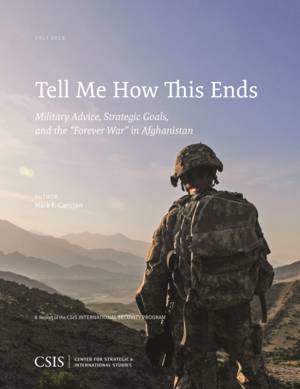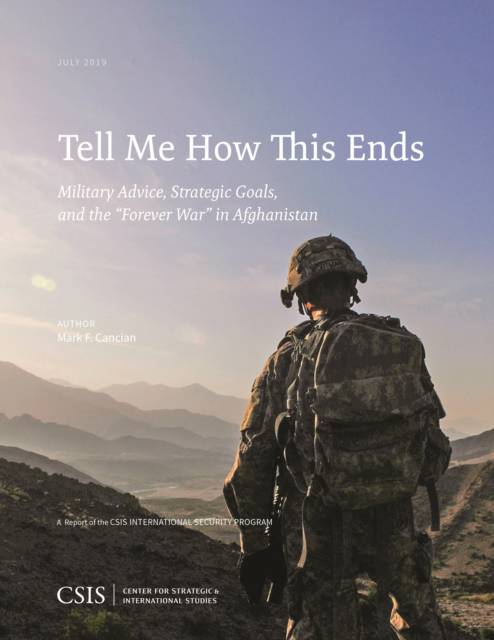
Bedankt voor het vertrouwen het afgelopen jaar! Om jou te bedanken bieden we GRATIS verzending (in België) aan op alles gedurende de hele maand januari.
- Afhalen na 1 uur in een winkel met voorraad
- In januari gratis thuislevering in België
- Ruim aanbod met 7 miljoen producten
Bedankt voor het vertrouwen het afgelopen jaar! Om jou te bedanken bieden we GRATIS verzending (in België) aan op alles gedurende de hele maand januari.
- Afhalen na 1 uur in een winkel met voorraad
- In januari gratis thuislevering in België
- Ruim aanbod met 7 miljoen producten
Zoeken
Tell Me How This Ends
Military Advice, Strategic Goals, and the "Forever War" in Afghanistan
Mark F. Cancian
€ 50,45
+ 100 punten
Omschrijving
After 18 years post-9/11, the United States is still in Afghanistan having achieved at best a stalemate. This CSIS report concludes that the mission in Afghanistan expanded from a limited focus on counterterrorism to a broad nation-building effort without discussions about the implications for the duration and intensity of the military campaign.
Specificaties
Betrokkenen
- Auteur(s):
- Uitgeverij:
Inhoud
- Aantal bladzijden:
- 56
- Reeks:
Eigenschappen
- Productcode (EAN):
- 9781442281257
- Verschijningsdatum:
- 17/09/2019
- Uitvoering:
- Paperback
- Afmetingen:
- 279 mm x 216 mm
- Gewicht:
- 192 g

Alleen bij Standaard Boekhandel
+ 100 punten op je klantenkaart van Standaard Boekhandel
Beoordelingen
We publiceren alleen reviews die voldoen aan de voorwaarden voor reviews. Bekijk onze voorwaarden voor reviews.









